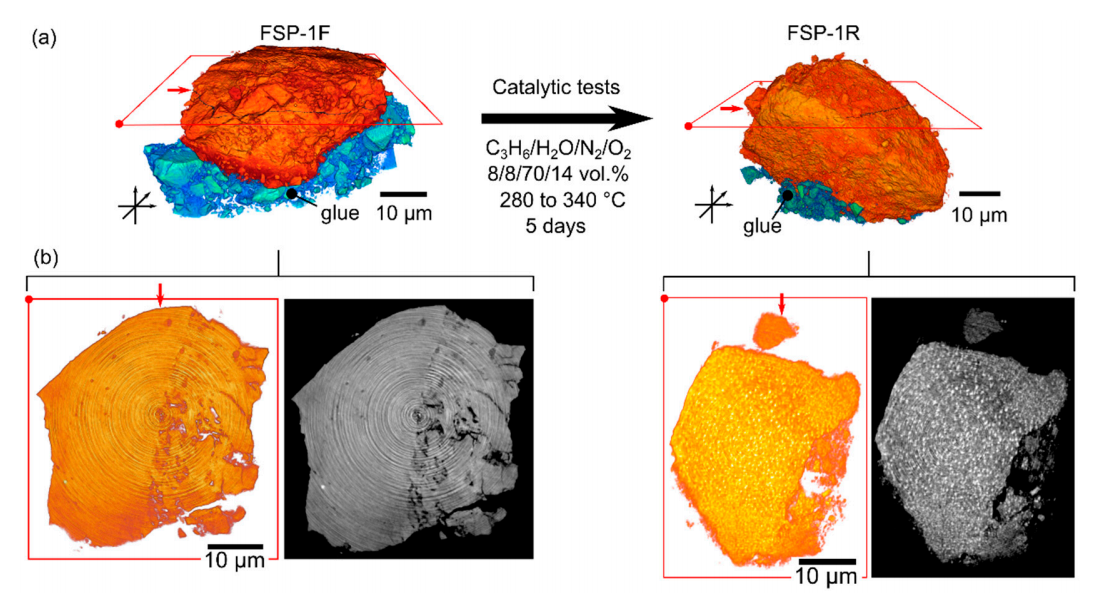Structural Evolution of Highly Active Multicomponent Catalysts for Selective Propylene Oxidation

Multicomponent Bi-Mo-Fe-Co oxide catalysts prepared via flame spray pyrolysis were tested for selective propylene oxidation, showing high conversion (>70%) and selectivity (>85%) for acrolein and acrylic acid at temperatures of 330 ◦C. During extended time-on-stream tests (5–7 days), the catalysts retained high activity while undergoing diverse structural changes. This was evident on: (a) the atomic scale, using powder X-ray diffraction, Raman spectroscopy, X-ray absorption spectroscopy, X-ray photoelectron spectroscopy, and transmission electron microscopy; and (b) the microscopic scale, using synchrotron X-ray nanotomography, including full-field holotomography, scanning X-ray fluorescence, and absorption contrast imaging. (…) The combined multiscale approach here is generally applicable for deconvolution of complex catalyst systems. This is an important step to bridge model two-component catalysts with more relevant but complex multicomponent catalysts.